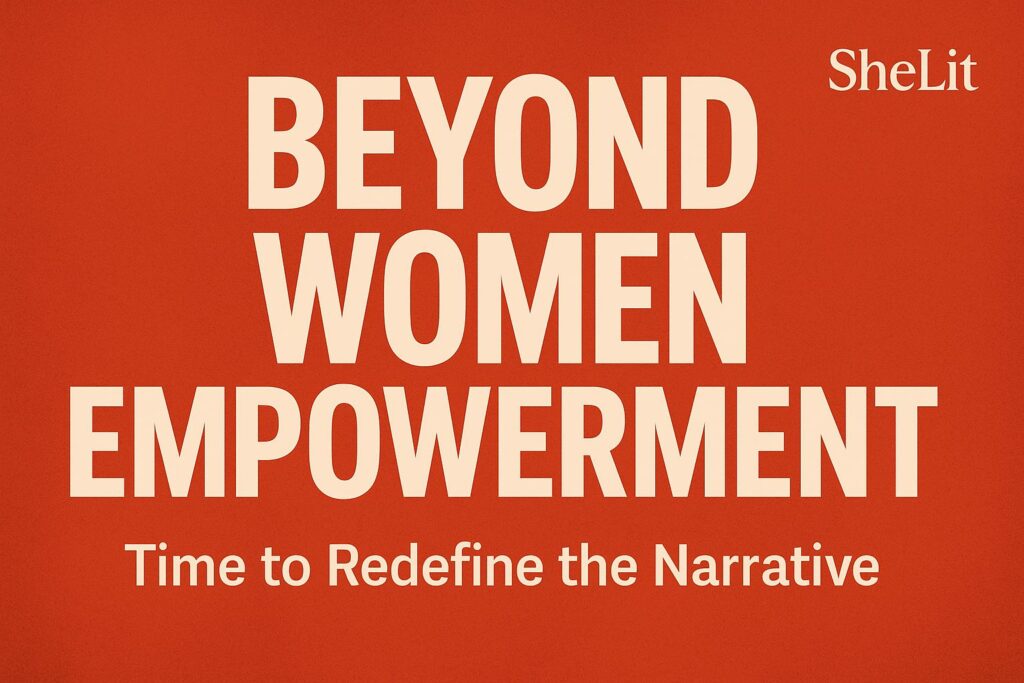For decades, India has been speaking about women empowerment. Governments, NGOs, schools, and media campaigns have repeated the term so often that it now feels like a slogan more than a solution. But if we pause for a moment, an uncomfortable question arises, do Indian women still need to be “empowered,” or do we need to redesign the entire system so they no longer have to ask for empowerment at all?
Today, the conversation needs to evolve. The word empowerment suggests that women are powerless until someone else “gives” them power. But women have always had power, in history, in society, in families, and in movements. What they have often lacked is access, opportunity, and freedom to exercise that power on equal terms.
It’s time to move from empowerment to equity.
Empowerment vs. Equity
Empowerment is about lifting someone up; equity is about making sure they never have to be lifted in the first place. Empowerment campaigns often focus on motivating women to fight harder, speak louder, and demand their rights. While this is important, it also puts the entire burden of change on women themselves.
Equity shifts the focus to the system. It asks:
- Why does a woman have to fight for equal pay?
- Why does she need to “prove” her competence in boardrooms?
- Why does she need extra courage just to walk home safely at night?
True empowerment will come only when these barriers are removed, not when women learn to climb over them.
Systemic Change, Not Symbolic Change
India has made progress: more girls in schools, more women in the workforce, more female leaders in politics and business. But many of these victories remain symbolic unless supported by systemic change.
We need:
- Equal pay laws with strict enforcement
- Safer cities with better street lighting, fast-track courts, and real-time safety infrastructure
- Workplace reforms with flexible hours, maternity and paternity leave, affordable childcare
- Representation in leadership, not as tokenism but as policy
Empowerment should no longer be about celebrating women for surviving a tough system; it should be about making the system fair for everyone.
End Empowerment Fatigue
There is also something called empowerment fatigue. Women are tired of being told to “be strong,” “fight back,” and “shatter glass ceilings.” Why must women constantly fight to live a life that men live without asking?
The future of gender justice lies not just in empowering women but in disempowering patriarchy, dismantling those invisible walls that force women into endless battles for respect and safety.
Education Must Be for Everyone
For years, campaigns have focused on educating girls and rightly so. But the next step is gender sensitization for boys and men.
If boys grow up understanding equality, consent, and respect, then girls won’t need to fight for basic dignity as adults.
Empowerment is not just about teaching girls to speak up; it’s about teaching boys to listen.
Intersectionality Cannot Be Ignored
The struggles of an urban, educated woman are very different from those of a rural woman, a Dalit woman, a woman with disabilities, or a single mother. Our new narrative must reflect this diversity. Women empowerment campaigns cannot be one-size-fits-all, they must address the unique challenges of every group.
The Language of the Future
Words matter. Empowerment was revolutionary once, but today we must talk about equality, equity, autonomy, and dignity. These words do not ask women to be given power, they demand a society where power is naturally shared.
We do not need to empower women; we need to redesign systems, reform policies, reshape attitudes, and rewrite narratives. The goal is not to make women strong, they already are, but to build a world where they don’t have to prove their strength every single day.
As SheLit, we stand for this new conversation. It’s time to stop asking how we can empower women and start asking how we can make a society where empowerment is no longer necessary.
Credit : kaira Pahuja Arora

